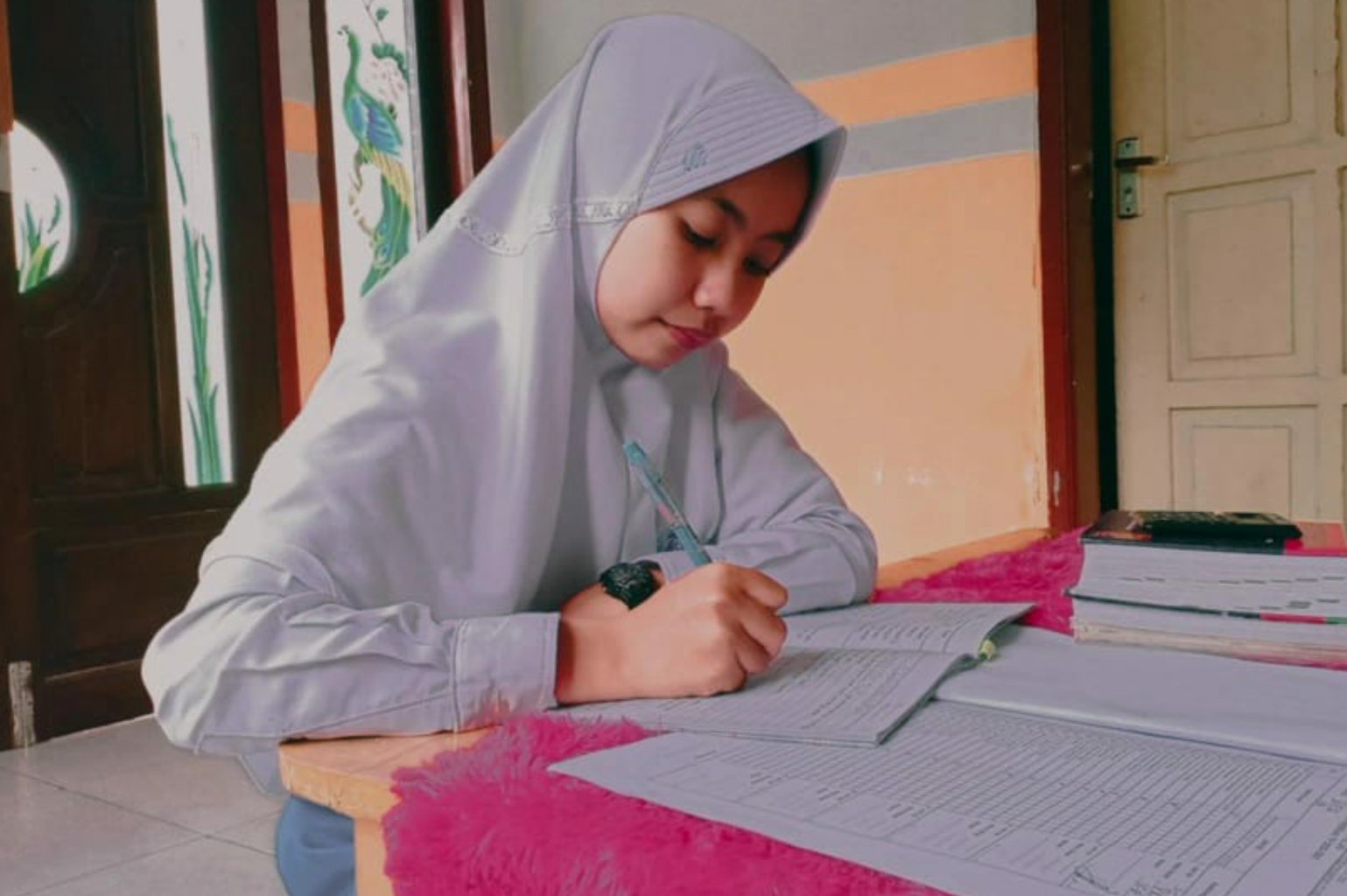Field Stories
In her words: Voices from girls around the world
October 5, 2023
Student shares her experience learning about anaemia prevention at school
A Grade 11 student from Lumajang, Indonesia wrote this blog during a digital content creation workshop. Students created blogs and social media videos to share their experience learning about the importance of good nutrition and taking iron and folic acid supplements to prevent anaemia.
Posted on October 6, 2021
I started taking iron and folic acid (IFA) supplements when I was in the 7th grade, at the age of 13 years, to be exact. Every Friday, supplements are distributed to female students at my school after gym class.
The supplement distribution is carried out by the school clinic. After being distributed, we either take the supplements together or if we don’t have food at school we bring them home to take after eating. As for me, I don’t really like taking the IFA supplements, but I take them anyway after learning about the connection they have to my health.
All in all, IFA supplements are beneficial to contribute to nutritional intake for iron needs.

Adolescent girls not taking IFA supplements are at a higher risk of suffering from a shortage of iron. This can be because they’re not receiving the iron their body needs through their diet. Teenage girls are particularly prone to anaemia because they lose a lot of blood during menstruation. It’s recommended that adolescents take one dose weekly. Meanwhile, pregnant women should take 180 supplements or more during their pregnancy to prevent anaemia. Taking iron supplementation now and learning about its importance will be helpful to me later in life because I already understand its purpose.
The IFA supplements are beneficial as long as they are consumed according to the dosage. Some of the benefits of the supplements include maintaining sufficient iron needs of the body, ensuring our bodies produce the right amount of hemoglobin that binds oxygen and helping to alleviate anaemia. Iron is essential in forming hemoglobin in the body to help overcome anaemia . The supplements are given to adolescent girls through the school or madrasa health unit in educational institutions (junior high school and high school or the equivalent) on a specific day as agreed in each region.
I felt a little nauseous when I first started taking the IFA supplement. Every Friday when I would get the supplement, I hid or discarded it. I eventually stopped taking them, but I didn’t tell anyone.
“Knowing the benefits of the supplements and the detrimental consequences of not taking them, I then decided to take them routinely once a week as advised.”
A few weeks after I stopped taking the supplements, I often fainted and felt lethargic. This uncomfortable condition impeded my learning activities, and I needed to visit the school health unit, especially when I felt dizzy.
Eventually, I had a wellbeing check by the school health unit’s supervisor. I admitted that I had stopped taking the IFA supplements. The supervisor responded by explaining the benefits of taking the supplements to me and the consequences of not taking them for adolescent girls and young women. The health supervisor also explained that the side effects usually go away after a couple of weeks.
The advice opened my mind, and I regretted my decision to stop taking the supplements weekly. Knowing the benefits of the supplements and the detrimental consequences of not taking them, I then decided to take them routinely once a week as advised. As a result, I have become healthier and never feel faint anymore.
More than just a means to avoid anaemia, the IFA supplements are also good for your overall health and are helping me excel in my schooling. Therefore, I tell my friends to take their supplements routinely to get the most favorable benefit. I’m glad to have participated in this workshop so I can share my story and what I am learning about nutrition.
This blog was written during a digital content creation workshop facilitated by Nutrition International as part of the MITRA Youth program. Nutrition International works with governments around the world on anaemia prevention programming with a key focus on adolescent nutrition. Learn more about our work on adolescent nutrition and the MITRA Youth program in Indonesia.